Iranian Dissident Hossein Ronaghi Again Detained by Authorities
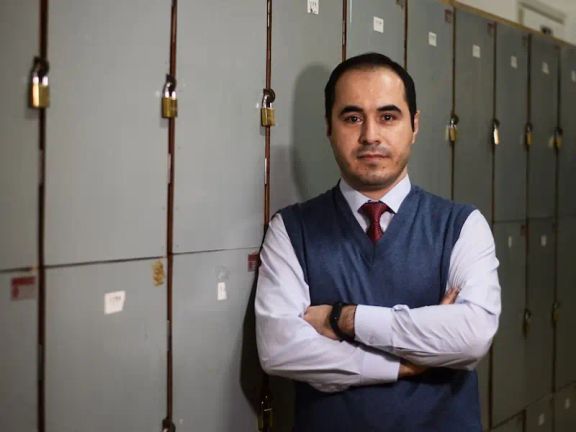
Political activist Hossein Ronaghi was detained by Iranian security forces during his Sunday night trip from Tabriz to Tehran, interrogated for several hours at Tabriz airport.

Political activist Hossein Ronaghi was detained by Iranian security forces during his Sunday night trip from Tabriz to Tehran, interrogated for several hours at Tabriz airport.
"The initial reason given was carrying the emblem of Woman, Life, Freedom and the Lion and Sun. Then, unlawfully and without a warrant, they stated that the deputy prosecutor of Tabriz had ordered the confiscation of my mobile phone, laptop, electronic devices, and identity documents," he said.
Ronaghi, an Iranian blogger, human rights activist, and political dissident, was arrested in September 2022 amid the uprising sparked by the death in morality police custody of Mahsa Amini. He was arrested along with his lawyers in front of the Evin Prison prosecutor's office and subsequently tortured. In protest, he went on a hunger strike.
Ronaghi, 37, has lost one kidney due to previous torture inflicted, with his second kidney now functioning at only 60 percent, according to human rights sources. Iranian authorities released Ronaghi on bail in November 2023, but he has been subjected to consistent harassment from the authorities since then.
He has been arrested and jailed multiple times over the past 13 years, first detained in 2009 for his involvement in the post-election protests.
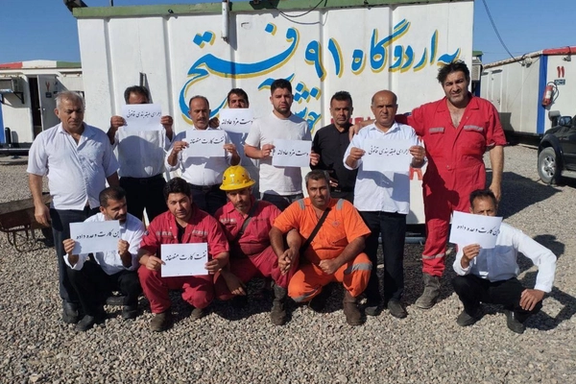
Contract workers from key Iranian oil and gas companies in the south continue to protest against wage discrimination and dismal working conditions at their respective enterprises.
Workers from Gachsaran Oil and Gas Producing Company and the National Iranian Drilling Company last week demanded an end to the “unjust wage system discrimination” and are calling for “equitable treatment for all”. Sporadic strikes and protests continue.
“Oil Ministry officials, who are full-time employees with permanent contracts, are clearly prioritizing their own interests and showing complete indifference towards contract employees. This stark disparity in treatment raises the question, is this fair?” reported the Iranian Labour News Agency (ILNA) on Friday.
In recent years, Iran's oil and gas sector has replaced thousands of regular employees with contract workers who endure harsh conditions and low pay.
"The Ministry of Oil officials should be held accountable. How is it that official employees are paid promptly, but contract employees, who constitute the majority of this industry, remain unpaid?" a protesting worker told ILNA.
In February, workers were given assurances that the Job Classification Act (JCA) would be implemented and that they would receive their salaries based on it by May. However, this promise has not been fulfilled. The absence of job classifications means that workers can be trapped in precarious temporary positions for years, with varying pay rates, even for the same work.
The JCA does not cover the majority of wage earners in Iran, leaving their jobs unclassified, which has become the status quo.
The protesters seek amendments to the productivity bonus calculation formula to match that of fixed-term employees and revisions to the overtime calculation formula based on the Labor Law.
Not only tens of thousands of workers are hired on temporary and ad-hoc contracts, many segments of the oil industry have been handed to "private" contractors with government connections, who often simply ignore the law.
In March, there were calls for the impeachment of Iran’s Labor Minister due to concerns over the country’s minimum wage, which was set at approximately 110 million rials per month (about $175 US), falling far short of covering 60% of household living costs.
These protests underscore the increasing frequency of workers' demonstrations in Iran, signaling growing discontent within the labor force. Over the past three decades, there have been thousands of spontaneous protests, strikes, sit-ins, and work stoppages across various economic sectors.
Iran has experienced no economic growth for more than a decade. The US withdrawal from the JCPOA nuclear deal in 2018 and reimposition of economic sanctions, further aggravated the situation. Over the past six years, Iran's national currency, the rial, has fallen 15-fold, resulting in inflation and poverty for millions of Iranians.
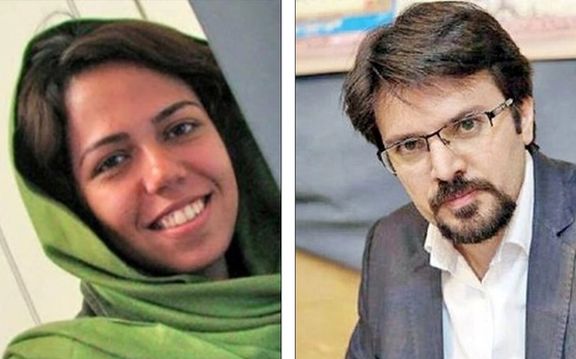
Yashar Soltani and Saba Azarpeik, two prominent Iranian journalists known for their reporting on corruption, have been arrested to serve their sentences, according to Shargh newspaper.
Both journalists have been vocal critics of the Iranian government, exposing financial wrongdoing within its ranks.
Soltani faces a 13-month sentence for “spreading lies to disturb the public's mind."
Azarpeik is facing charges in two separate cases, with a total of 15 private accusers. She has been convicted in one case and sentenced to two years in prison and a fine for “defamation and publishing false information.” The legal process of the other case with eight private accusers is also under review and the final verdict has not been issued.
Soltani served jail time in 2016 for uncovering financial corruption within the Tehran Municipality during the leadership of current parliament speaker Mohammad Bagher Ghalibaf.
In an interview in October, Soltani lamented the persistence of corruption, highlighting how corrupt individuals remain unscathed despite exposure. He further criticized the Iranian justice system's alleged bias towards those close to the regime's core, including Supreme Leader Ali Khamenei's inner circle.
Azarpeik 's investigative work brought to light various corruption cases, including corruption within the Tehran Municipality under Ghalibaf and corruption within the Ministry of Industry, Mines and Trade under both Hassan Rouhani and Ebrahim Raisi's administrations.
Her commitment to exposing wrongdoing has come at a cost. She faced legal repercussions in 2009 for reporting on police brutality and has been arrested on multiple occasions.
Detained in June 2014 on vague national security charges, she was held in solitary confinement for 40 days before release on bail in August 2014.
The arrests of Soltani and Azarpeik highlight the challenges faced by journalists who dare to challenge the status quo in Iran.
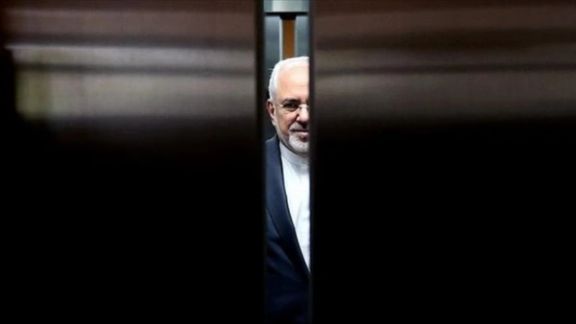
A short video interview with a 'moderate' candidate in Iran’s upcoming presidential election has stirred interest because a reporter asked the candidate if he would appoint Javad Zarif as foreign minister if elected president.
Massoud Pezeshkian, a lawmaker running as the sole ‘reformist’ candidate replied that he would welcome people “who have experience, knowledge and are effective,” without directly affirming or rejecting Zarif’s possible appointment.
Pezeshkian is being promoted by some on social media as an alternative to five other candidates who are clearly on the conservative side of the political spectrum. Whether the highly manipulated election will give Pezeshkian a fair chance, or whether millions of disillusioned voters would rally around him are entirely different questions.
In the last three elections, in 2020, 2021 and March 2024, a substantial segment of voters stayed away from the ballot box. Turnout was substantially below 50%, although amid government control over information it is hard to exactly know how many people voted. In the March parliamentary elections, officials announced that around 40% of eligible voters participated, but many regard this as an exaggerated tally by those who are in control.
Zarif has not commented on his willingness to re-enter the government. However, he was one of over 150 'reformist' figures who signed a letter last week, urging the regime to moderate its behavior and encouraging people to vote. 'Reformists' as their label denotes, are committed to the essence of the Islamic Republic as a political system but cautiously criticize some of its practices.
For example, in the letter, signed by many prominent 'reformists' homage is paid to Iran's missile and drome attack on Israel, harshly condemning the United States for its support for the Jewish state. However, the signatories criticize the regime for its internal policies favoring hardliners and creating a rift with the people.
The make-up of six candidates, out of 80 aspirants, approved by the unelected Guardian Council, which is controlled by Supreme Leader Ali Khamenei, is not much different from the 2021 election. The list is dominated by conservatives and hardliners loyal to Khamenei, with one ‘reformist’ included who has to face difficult odds if 10 million more voters do not turn up to push him ahead of others.
But voters have tested what many call “the regime’s game.” In order to increase turnout and boost the Islamic Republic’s waning legitimacy, sometimes a reformist is included to attract voters. Even if that candidate wins, an array of conservative state institutions, media and pressure groups launch obstructive campaigns to make the elected official ineffective.
This is what happened to President Mohammad Khatami (1997-2005), who faced crisis after crisis during his tenure, mostly manufactured by hardliners. The same awaited ‘centrist’ Hassan Rouhani (2013-2021), who was harassed and subjected to incessant attacks, while having little control over key economic and diplomatic decisions.
These two presidents were elected by large turnouts encouraged by ‘reformist’ groups and parties. However, voters realized that no meaningful change could take place, even if a ‘reformist’ is president or ‘moderates’ dominate the parliament.
The question now is whether Pezeshkian, a physician seemingly untainted by corruption scandals, can motivate "the gray strata" to come out and vote. If he secures a decisive victory, he might consider appointing Javad Zarif. However, it's important to note that Khamenei has the final say on most ministerial appointments. If he agrees with Zarif’s appointment, it could mean an inclination to use his diplomatic experience to find a way out of back-breaking sanctions that have paralyzed the economy.
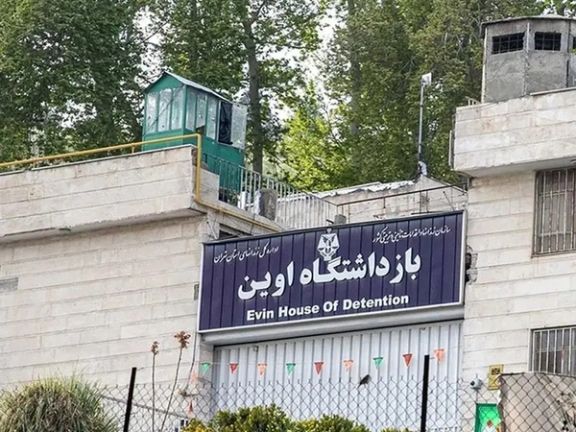
Six political prisoners at Tehran’s notorious Evin Prison have been charged with armed rebellion against the state, a crime that could result in the death penalty, sparking significant concerns among human rights groups.
These charges were brought by the fifth branch of the Islamic Revolutionary Prosecutor's Office of Tehran, according to a report by the Human Rights Activists News Agency (HRANA) on Friday. The accusations stem from their alleged "membership and collaboration with a group opposing the regime" as reported by HRANA.
In a joint case, Vahid Bani-Amerian, Pouya Ghobadi, Babak Alipour, Abolhasan Montazer, Seyed Mohammad Taghavi, and Ashghar Daneshfar were accused of “baghi” (armed rebellion) and "assembly and collusion against national security" on May 14.
Article 287 of the Islamic Penal Code states that any group taking up arms against the Islamic Republic is considered a rebel and "its members shall be sentenced to death.” This provision means that the six prisoners are facing potential execution due to the charge of rebellion.
HRANA further reported that Bani-Amerian, Ghobadi, Alipour, Montazer, Taghavi, and Daneshfar were arrested in the fall and winter of last year and transferred to Evin prison. They are currently held in various sections of the prison’s Ward 4.
65-year-old Montazer was a former political prisoner during the 1980s and also served time as a political prisoner in recent years. He was released from the infamous Rajaei Shahr Prison in Karaj last year after serving three years of imprisonment.
57-year-old Taghavi was also a former political prisoner in the 1980s.
Alipour and Ghobadi were also arrested in previous years and served time as political prisoners.
Following Iran’s 1979 revolution, the Islamic Republic has continuously arrested, tortured, imprisoned, and executed dissident civil and political activists.
According to Amnesty International, between late July and September 1988, the Iranian authorities “forcibly disappeared and extrajudicially executed” at least 5,000 political prisoners.
Following Iran’s nationwide uprising which started in September 2022 following the killing of Mahsa Zhina Amini in the custody of the so-called ‘morality police’, Iranian authorities have intensified the repression of civil and political activists.
Additional Detainees Facing Armed Rebellion Charges
In February of this year, Iran International reported that two female political prisoners, Varisheh Moradi and Pakhshan Azizi, who are imprisoned in Evin Prison, are facing accusations of "armed rebellion". Moradi and Azizi’s cases were referred to the Revolutionary Court in Tehran for hearings.
Nasim Gholami Simiyari, a political prisoner also imprisoned in Evin prison, has been in custody since her arrest on 18 May 2023 on similar charges of “armed rebellion”.
Golrokh Irani, a political prisoner, wrote a letter from Evin Prison on May 21, marking the first anniversary of Simiyari's arrest and ongoing detention. In the letter, Irani stated that Simiyari was forced to confess against herself during interrogations.
Referring to Simiyari as a protestor in Iran’s nationwide Woman Life uprising, Irani remarked that “bringing heavy charges against a protestor on the streets” reflects the “desperation and malice of the state and its judicial and security [institutions] apparatus.”
“Protest is our right and the street is ours," Irani added.
Last week, writing about Simiyari's legal limbo, pro Bono Dadban Legal Group stated that prolonged indeterminate detention has become a tactic for Iranian authorities to isolate prisoners from their lawyers, apply pressure, and harass them, prisoner, extract forced confessions to build cases against them.
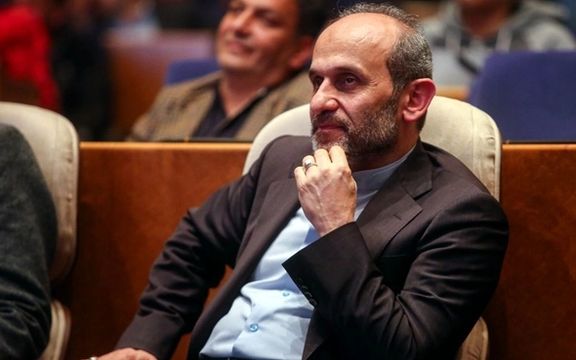
Iran's upcoming televised presidential election debate will be held under strict government control, according to Iran's broadcast chief.
Peyman Jebelli, the head of the Islamic Republic of Iran Broadcasting (IRIB), said the debates, slated as the main event of the election broadcasts, are set to last between three and a half to four hours.
The announcement comes after the Sunday confirmation by the Guardian Council of the final list of candidates for Iran’s snap presidential election on June 28—a list unsurprisingly dominated by hardliners loyal to Supreme Leader Ali Khamenei and all male.
Among those approved are Parliament Speaker Mohammad Bagher Ghalibaf, Supreme National Security Council representative Saeed Jalili, and Tehran Mayor Alireza Zakani, all known for their conservative stances. The roster also includes former Justice and Interior Minister Mostafa Pourmohammadi, current Vice President Amir-Hossein Ghazizadeh Hashemi, and Masoud Pezeshkian, a 'reformist' parliamentarian.
Jebelli said that the main topics for the debate would be distributed to the candidates' headquarters in advance to aid their preparation, yet the unresolved selection of debate moderators raises concerns about potential bias and manipulation.
In a display of the intent to control the narrative, Jebelli stated, “To prevent slander, defamation, and maligning against candidates, IRIB will definitely address electoral misconduct on behalf of the people and the government. We will assist the candidates in responding to attacks. We will expose and deal with the elements causing destruction, as this is the demand of the people and the Supreme Leader.”